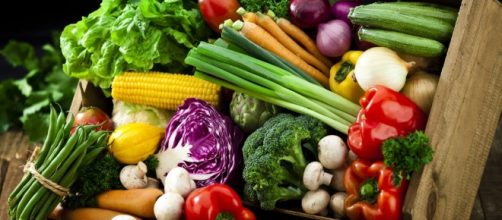Menopause is a natural process that all women go through at some point in their lives. For most women this happens around age fifty, but for some the process starts much earlier. A recent study conducted by the University of Massachusetts Amherst and the Harvard T.H. Chan School of Public Health found that women who consumed more vegetable protein had a lower risk of developing Early Menopause.
Early menopause occurs before the age of 45 and is linked to other health issues
Menopause is the natural process that occurs when a woman's menstrual cycles stop, marking an end to her reproductive years.
Menopause sets in gradually as the body starts to decrease its production of reproductive hormones over time. Menopause is considered to begin 12 months after a woman stops getting her monthly period. Although natural, menopause is often accompanied by annoying symptoms such as hot flashes and difficulty sleeping.
The average age of women who enter menopause is 51 but some may start this process earlier in a condition known as early menopause. One out of every twenty women in the United States have this condition. Along with an earlier end to reproductive years, there are other problems associated with this condition. Women who go through early menopause are more likely to develop chronic diseases such as osteoporosis, cardiovascular disease, and neurological disorders.
Additionally, they may have decreased fertility that starts as early as ten years before they go through menopause.
A new study links high vegetable protein intake with lower risks of early menopause
University of Massachusetts Amherst partnered with the Harvard T.H. Chan School of Public Health in a comprehensive study investigating the links between nutrition and early menopause. This study was conducted over the span of twenty years and involved almost 90,000 women.
In order to look for any nutritional explanations, researchers handed out a comprehensive questionnaire. This questionnaire asked participants to detail their eating habits before their reproductive years ended. They were given a list of 100 different foods and were asked to explain if they had ever eaten, and with what frequency.
This setup allowed for a clear distinction to be made between people who only ate a particular food once in their lives and those who ate certain foods once a day.
Researchers found that a higher intake of vegetable-based proteins correlated with a lower risk of early menopause. This means that people who ate more plant-based foods that were high in protein such as tofu, beans, or whole grains where less likely to develop the condition. Although more vegetable protein was associated with a lower risk, there was no connection whatsoever between the consumption of animal protein and early menopause.


